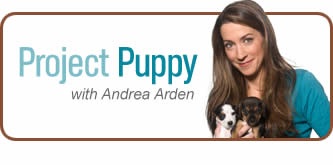Puppies are particularly responsive to experiences during the first 20 weeks of their life. This is a time when they are most apt to readily absorb information (in this case, positive information provided through thoughtful and controlled socialization and habituation). They are also less likely than an adult dog to have had previous unpleasant experiences and thereby will not have formed opinions of many things.
While a dog has the capacity to learn throughout it’s lifetime, the process of socialization and habituation should ideally begin during early puppyhood. Continued reinforcement of early, positive, formative social experiences should also play a part in the dog’s life throughout adolescence, adult hood and senior years.
Puppy parents are often bombarded with advice and perhaps the most challenging dilemma they face regards the issue of how to safely provide early social experiences. On the one hand they may be warned to keep their pup isolated in the home prior to finishing a traditional vaccine schedule. On the other, that they must make the most of the pup’s critical socialization period during the first 4 months of their life.
Young puppies are temporarily protected from diseases by the antibodies passed on to them through their healthy mother’s milk. This gradually fades and the pup begins producing his own antibodies. Outside of the domestic setting, a pup would gradually be exposed to diseases. If they survive, they develop future protective antibodies. In the domestic setting, vaccines can provide a gradual exposure to diseases that result in the development of antibodies. Since the exact date when the maternal immunity fades is variable, puppies are given a series of vaccinations to make sure they are not left unprotected.
A balance needs to be made between protecting a pup’s physical health and ensuring its psychological well being. This includes making thoughtful choices in regards to your pup’s early socialization protocol.
For example, there is a minimal health risk at a well-run, indoor puppy class where attendees are on a vaccine protocol. In fact, it could be argued that this is as safe a place for a pup to go as the veterinarian’s office where they would be potentially exposed to unhealthy dogs. On the other hand, taking a pup to a dog run is ill advised.
The risk of contracting a disease is no more worrisome than the risk of an under-socialized pup developing into a distrustful, fearful, or aggressive adult dog. Furthermore, in general puppies are more prone to recover from the most likely contagious diseases they may get from other well cared for dogs than from lack of early socialization.
While avoiding contact with other dogs and their people may help safeguard a puppy from exposure to contagious diseases, it leaves them susceptible to the potential for ongoing behavior issues related to a lack of early socialization. Have a chat or two with your veterinarian to discuss the details of your pup’s socialization protocol and steps you can take to ensure you find a balance between their mental and physical well being.
Andrea Arden is an animal behavior counselor, rescuer, author, speaker, and a resident pet expert on the Today Show. For more information, check out her website, AndreaArden.com.









